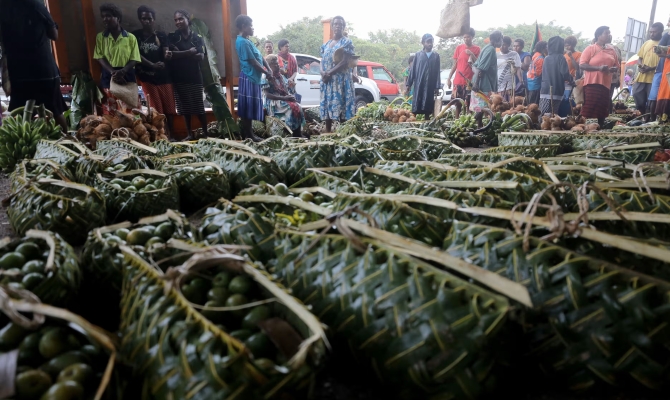
22 July 2024, Port Vila - In 2018, in Vanuatu’s bid to reduce waste and pollution in the river and marine environment, the nation implemented the first policy to outlaw the sale and distribution of certain single-use plastics – including plastic bags and plastic straws.
The results have been impressive. As reported in a recent article by the Guardian, in the six years since the ban took effect, plastic shopping bags are hardly ever seen with most shoppers carrying reusable bags at their local market or grocery store.
At festivals and outdoor events, food is more often served wrapped in banana leaves instead of polystyrene takeaway boxes. Now-banned items used to make up 35% of Vanuatu’s waste, but now make up less than 2%.
“Since they started the ban, you can see the lagoon has become cleaner,” local chief, Mr Ken Andrew told the Guardian. “Previously the plastic would form a small island inside the lagoon, it was so thick. We used fishing nets to pull some of the trash out, but we didn’t know how to get rid of it all. We couldn’t conquer it, there was just too much.”
In 2020, a second phase of the policy added seven more items to the list of banned plastics, which now covers cutlery, single-use plates and artificial flowers.
Now the government seeks to progress with the next policy control to reduce waste and pollution in communities and the marine environment, though the implementation of a Product Stewardship Scheme (PSS) to collect beverage containers.
“The plastic ban has been very effective, but plastic bottles are still often seen as littering coastlines and rivers,” said Ms Roselyn Bue, Senior Officer at the Department of Protection and Conservation (DEPC).
“These items are not items we seek to ban, but the department seeks to collect and manage them in an effective and sustainable way that benefits the environment and communities of Vanuatu. From our research we see a PSS deposit/fee-type scheme as an effective solution to collect these items in Vanuatu.”
The DEPC, in partnership with a Council of Minister approved multi-agency Working Group, are working closely with Searious Business, global experts in the design of PSS schemes. Searious Business have been engaged though the EU-funded SPREP-implemented PacWastePlus programme.
The Minister of Climate Change Adaptation, Meteorology and Geo-Hazards, Energy, Environment and Disaster Management, Hon. Minister Ralph Regenvanu, hopes to have the PSS scheme designed by the end of 2024.
PHOTO CREDIT: Mario Tama/Getty Images